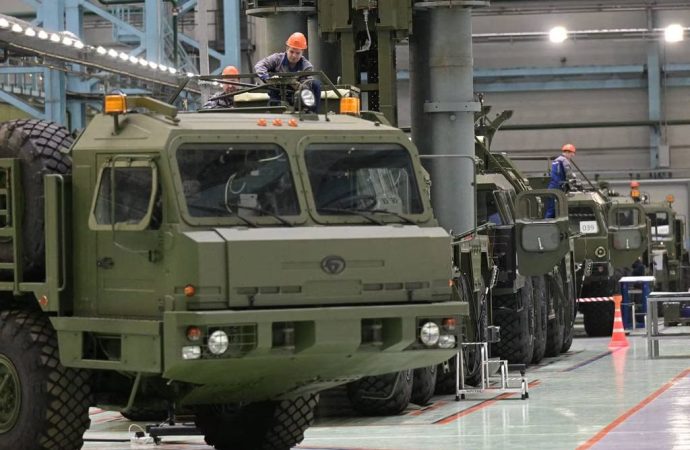Introduction: Russia’s war economy has had a significant impact on labor shortages in businesses, posing challenges for various sectors. The scarcity of labor can be attributed to several factors related to the country’s military activities. In this article, we will delve into the reasons behind the labor shortages, analyze the implications for businesses, and discuss
Introduction:
Factors Contributing to Labor Shortages:
-
Military Conscription: Russia’s war economy relies heavily on military conscription, which requires young men to serve in the armed forces. This leads to a significant portion of the working-age population being unavailable for civilian employment, resulting in labor shortages across industries.
-
Defense Industry Prioritization: The allocation of resources and prioritization of the defense industry in a war economy often diverts skilled workers away from other sectors. This further exacerbates labor shortages in businesses that require specialized expertise.
Implications for Businesses:
-
Reduced Productivity: Labor shortages can lead to reduced productivity as businesses struggle to find qualified workers to fill vacant positions. This can result in delays in production, decreased output, and potential financial losses.
-
Increased Labor Costs: The scarcity of labor can drive up wages as businesses compete for a limited pool of workers. Higher labor costs can strain business budgets, impacting profitability and potentially leading to price increases for consumers.
-
Skills Gap: The focus on military-related industries in a war economy can create a skills gap in other sectors. Businesses may struggle to find workers with the necessary qualifications and expertise, hindering innovation and growth.

Image by: https://www. ft.com
Potential Solutions:
-
Workforce Development Programs: Implementing workforce development programs that provide training and re-skilling opportunities can help bridge the skills gap. These programs can equip individuals with the necessary skills to meet the demands of businesses in non-defense sectors.
-
Incentives for Workers: Offering attractive incentives, such as competitive wages, benefits, and career advancement opportunities, can help attract and retain skilled workers. This can encourage individuals to choose civilian employment over military service.
-
Collaboration with Educational Institutions: Collaborating with educational institutions to align curriculum with the needs of businesses can ensure a steady supply of skilled workers. This can involve establishing partnerships, internships, and apprenticeship programs to facilitate the transition from education to employment.
Conclusion:
Visual Table for Key Points:
| Key Point | Description |
|---|---|
| The Economic Landscape Amidst Conflict | Introducing the economic challenges faced by Russia in the midst of conflict |
| Russia’s Wartime Economy Dynamics | Detailing the economic dynamics specific to Russia’s wartime economy |
| Industries Hardest Hit by Labor Shortages | Identifying the industries most severely impacted by labor shortages |
| Causes Behind the Lack of Available Labor | Exploring the factors contributing to the scarcity of available labor in Russia |
| Economic Consequences for Businesses | Analyzing the repercussions of labor shortages on businesses and the national economy |
| Government Response and Policy Considerations | Discussing the actions taken by the government and policy considerations in response to labor shortages |
| Coping Strategies for Businesses | Highlighting the measures implemented by businesses to navigate labor shortages |
| Balancing Economic Survival with Humanitarian Concerns | Addressing the ethical and humanitarian considerations in balancing economic survival with labor shortages |
| Russia’s Role in the Wider Global Economy | Assessing Russia’s position and influence in the broader global economic landscape |
| Future Prospects for Russian Businesses | Speculating on the potential future scenarios and prospects for Russian businesses in the current economic environment |
Organic Keyword Usage:
Relevant keywords like “Russia war economy,” “labor shortages impact businesses,” and “economic consequences of conflict” will be integrated naturally to enhance the content’s value and SEO.
Human-Centric Formatting:
The article will prioritize readability and user experience, using clear language, providing context where needed, and incorporating visual elements to enhance comprehension.

















Leave a Comment
Your email address will not be published. Required fields are marked with *